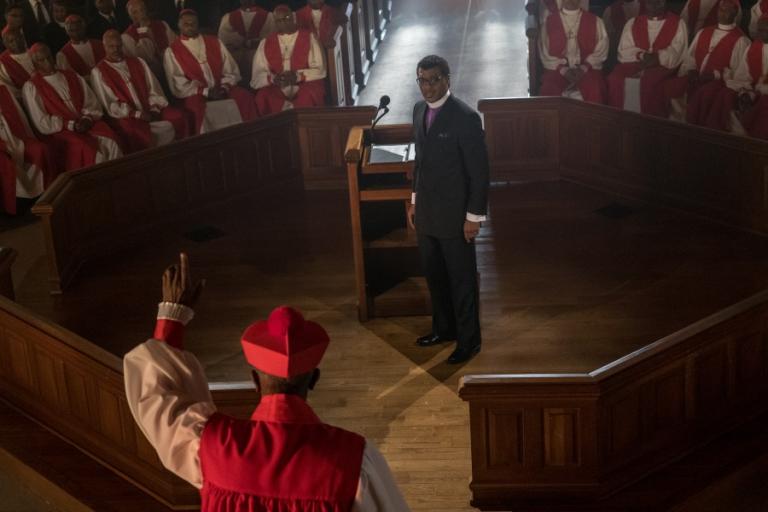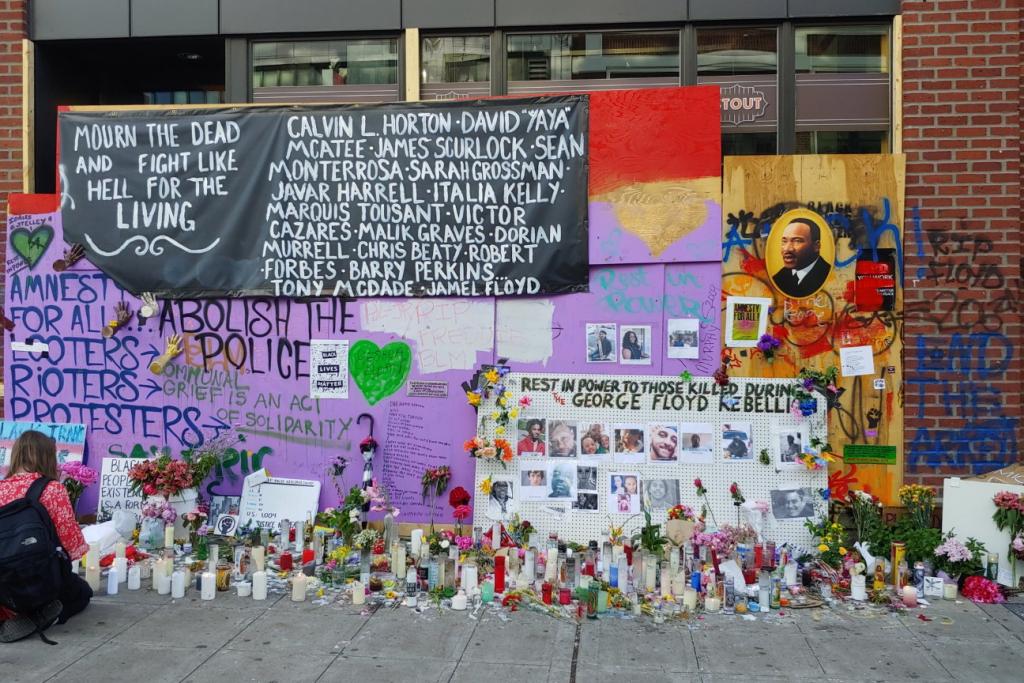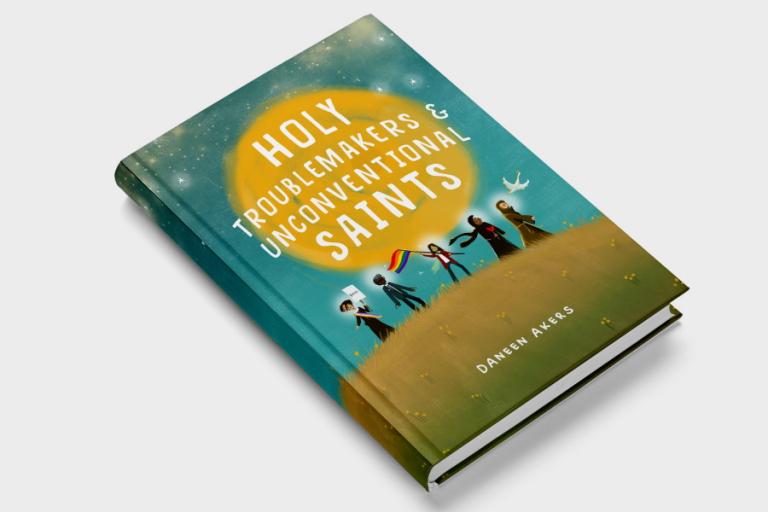
Come Sunday starts off with a scenario all too familiar from my own fundamentalist background. Our main character, Carlton Pearson, is seated on a plane next to a woman, and because he knows she’ll burn in hell for all of eternity if he doesn’t say something, he has to engage her in conversation in order to lead her to salvation.
The difference between Carlton and my own past self in this scenario is that he’s outgoing, he’s good at small talk, and he actually does engage her in conversation. My introverted self, on the other hand, would just end up sitting there awkwardly, trying the whole time to muster up the courage to speak, while feeling the weight of guilt that this person’s eternal soul rests in my hands, and I’m letting them down.
The movie then transitions to yet another familiar scene—that of the pastor using his recent witnessing experience as a sermon prop. Here he launches into how he doesn’t really like such tactics, but he knows it’s what he has to do to keep people out of hell. “The world needs to get saved!” Because if they don’t, God will burn them alive forever. All the while, he laces his message with the truth of God’s incredible love, yet he doesn’t see the contradiction between that love and the concept of hell as eternal torment. At least he doesn’t see it yet.
But real life gets in the way of his theology. A beloved uncle commits suicide, having never been saved. Carlton’s mentor, Oral Roberts, explains how his own son had also committed suicide, and because he was gay, he too was deemed unsaved. And then he hears of suffering going on in Africa, of the hell on earth they already face, and he simply can’t reconcile how God could send such people straight from one hell to another, without their even having had the chance to hear about Jesus.
We see Carlton weeping over his Bible as he contemplates these matters. He’s starting to see how incompatible this view of hell really is with a God of love. And then he has a revelation. He decides to share it from the pulpit:
I said, “God, I don’t know how you can call yourself a loving, sovereign God, and let these people suffer like this. None of them are saved. They don’t know Christ. They’re not born again. And when they die, you just suck them down into hell.”
And then I heard a voice, as clear as my own, say, “Is that what you think? That we’re sucking them all down into hell when they die?” I said, “Yes.” And he said, “Well, what would you do about that?” And I said, “Well, we got to get them saved. We got to speak the gospel to them.” And he said, “Well, if that’s what you think will get them saved, then put your baby down, turn off your big-screen TV, and get on the first thing smoking, and get them saved.”
I said, “God, don’t put that guilt on me. I’ve given you the best forty years of my life. Besides, I can’t save the whole world.”
And he said, “Precisely. You can’t save this world. That’s what we did.”
Oh, stay with me. Stay with me. All my life, I’ve been taught, everything I know points to a choice, heaven or hell. Many people I love, members of my own family, went to hell, and they’re there for good. Now, I could never reconcile that, but I do accept it because they had a choice. But when did these people in Africa separate from God? When did they make a choice? And how do they get saved?
And he said, “They don’t need to get saved. They’re already saved. And I’ve taken them into my presence. They will all be with me in heaven.”
From there, the interrogations begin. His fellow ministers are not happy that he’s dared to preach such an inclusive message. His closest friends start to abandon him. He ends up losing his church. And eventually, he’s called up for what essentially amounts to a heresy trial.
Carlton’s story is a true one, or at least the movie is based around actual events. I had never heard of Carlton Pearson before hearing about this movie, so I can’t speak to how accurate it is to his life, nor can I comment on anything else about him. I can only speak to the movie itself.
As a movie, it isn’t a particularly exciting one. But it does do a good job of conveying the struggle you go through in deconstructing beliefs, while friends and family abandon you over it. That’s something I know all too well, and the movie resonated with me on this respect. Of course, I’m not nearly the public figure Carlton was, and I can’t imagine how much greater the pressure must have been under such circumstances.
There are some similarities between Come Sunday and the 2012 film, Hell & Mr. Fudge, which is also based on a true story. While Come Sunday depicts Carlton Pearson’s conversion from a belief in hell as eternal conscious torment to a belief in universalism, Hell & Mr. Fudge depicts Edward Fudge’s journey to a belief in hell as annihilationism. My own journey started out with annihilationism, and only much later brought me to a place of hopefulness for universal reconciliation.
I’m glad that such films are being made, and I’m glad that such conversations are happening on a wider scale within the church. The view of hell as eternal conscious torment is one of the most blasphemous lies ever devised, and it’s well beyond time for the church to move past it. I’m doubtful as to whether either film would be very persuasive for those with an entrenched belief in eternal torment, but I’m hopeful that it may inspire at least a few to honestly reexamine what they believe.
Netflix will begin streaming Come Sunday on April 13.












